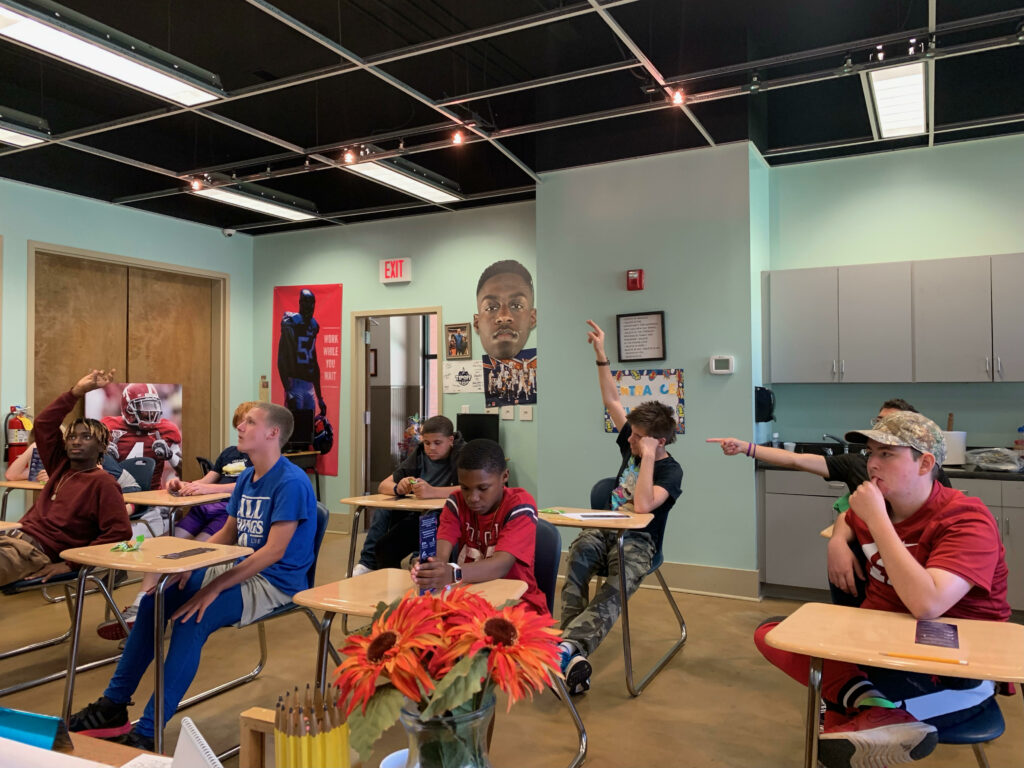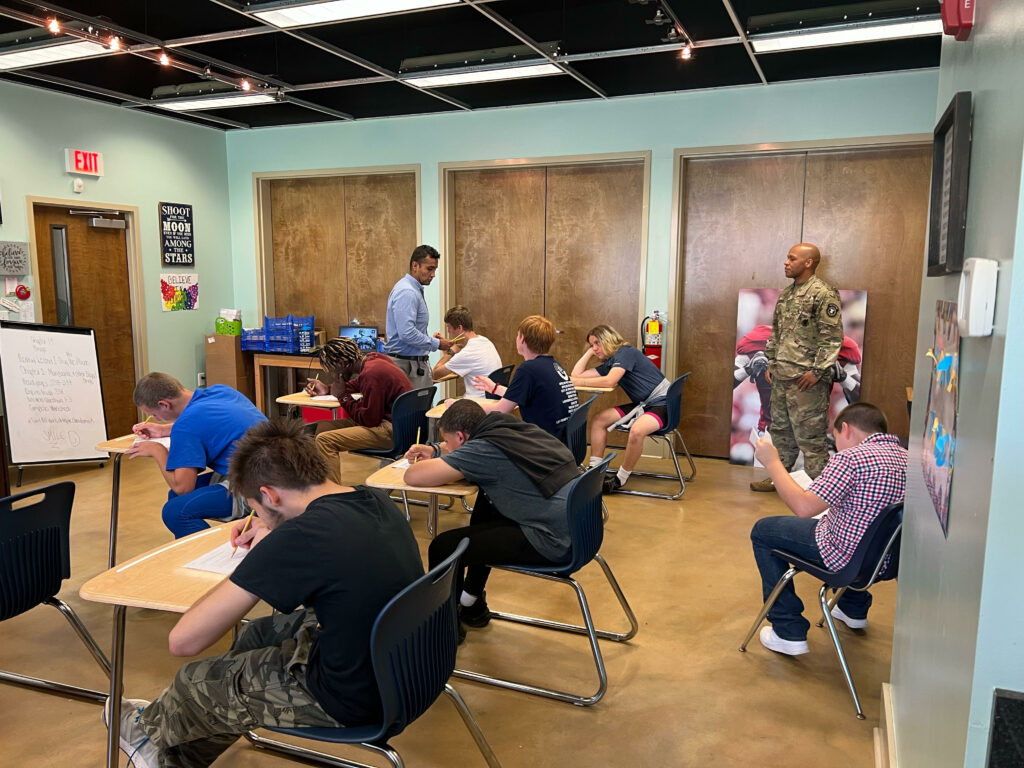By: Javacia Harris Bowser
Albert Schweitzer Fellow Andres Tovar isn’t one to spout religion, but it was a Bible verse that helped him decide to work with youth for his ASF project. Proverbs 22:6 reads, “Train up a child in the way he should go and when he is old, he will not depart from it.” Andres implemented a four-week substance use disorder education program at the Lee County Youth Development Center in hopes of inspiring adolescents in the center’s residential programs to avoid use or abuse of alcohol, tobacco, and controlled substances.
“I realized I made the right choice because I made such great connections with them,” Andres says. “It’s a lot easier to help somebody before they’re set in their ways.”
Andres’ program included presentations on a variety of topics such as substance use disorder, alcohol use, tobacco and marijuana use, and opioid use. He also helped the participants, who ranged in age from 12 to 17, with test taking skills, and he led presentations on human anatomy and sexually transmitted infections.
Andres’ lesson on tobacco made such an impact on one student that the boy convinced his father to stop smoking. Another student used the test-taking skills she learned from Andres to prepare for getting her GED. And the students were shocked to learn that vaping can be just as harmful as tobacco use.
Andres’, a Marine Corps veteran, says his military training helped him throughout the course of his project.
“I leaned heavily on that confidence I gained from talking to large groups and being able to express information succinctly and in a way that it’s easily understood,” he says. “I leaned heavily on that experience because it can be a little bit unnerving going up to a group of kids. Adults, they won’t judge you as much. They may think, ‘Oh, this guy doesn’t know what he’s talking about,’ but they won’t say it. Kids will say it!”
But Andres proved to both the youth and adults at the facility that he indeed did know what he was talking about. Plans are in place for the instructors at the Lee County Youth Development Center to adopt and continue teaching Andres’ program after his ASF project is complete.
Before landing at the Lee County Youth Development Center, Andres presented his idea to a few correctional facilities, but unfortunately, the leaders there were dismissive of the project.

“Having this vision, having this idea in mind, and then trying to convince others without really being as authoritative as you were in the military, it was a complete change that I had to undergo and it was frustrating,” he says.
Despite the challenges, Andres says the project has been extremely rewarding and has helped prepare him for future endeavors. Andres is a student at Auburn University’s Harrison School of Pharmacy. After pharmacy school, he hopes to complete a clinical residency that will focus on patient care, following patients from diagnosis through treatment.
“The biggest help this project has done is instilling more confidence in my ability to connect with people and help them see things differently,” Andres says.

But Andres found the students he worked with causing him to see things differently too.
“The boys I worked with were taken out of their home because either their parents were not around or they were exposed to a lot of things that they shouldn’t have been at such a young age,” Andres explains. “I think back on my youth and it wasn’t nearly as hard as theirs and they just remained so hopeful.”
Many of the girls in the program were dealing with legal troubles caused by bad decisions but also had erratic home lives. But several of them were still making efforts to turn their lives around.
“Their optimism in the face of adversity,” Andres says, “that’s what inspired me to be more appreciative of what I do have and be more hopeful.”


